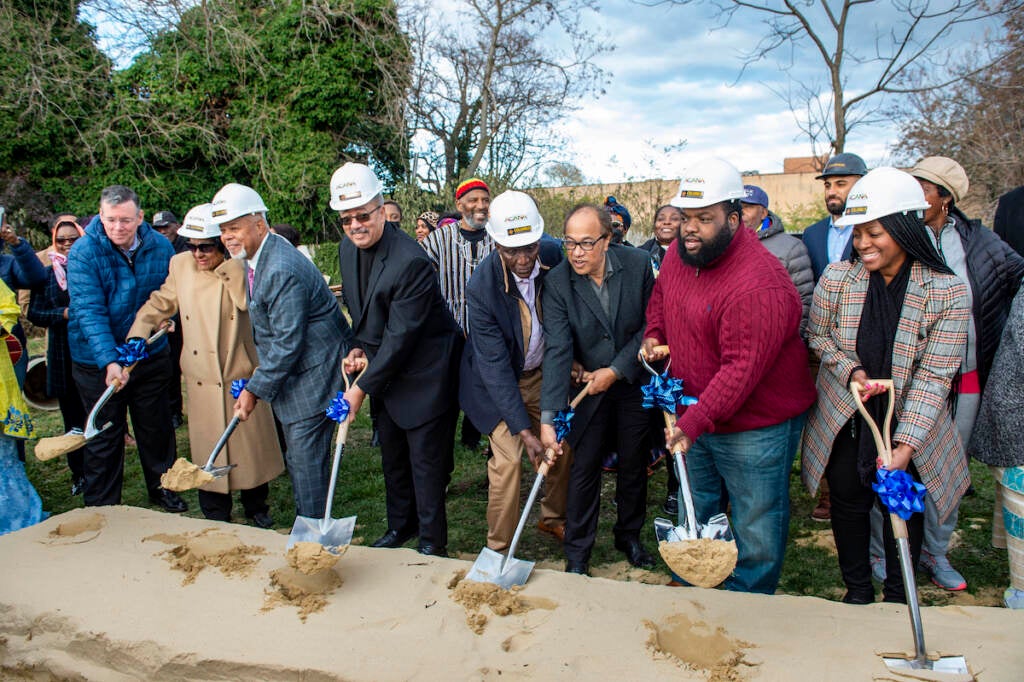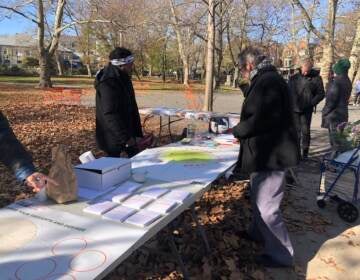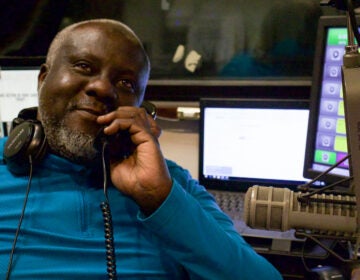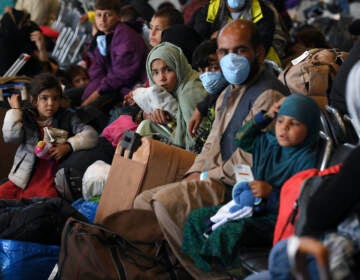Southwest Philly will soon be home to ‘Africatown,’ powered by a grant-winning nonprofit
The African Cultural Alliance of North America, a nonprofit supporting African immigrants, got a $9 million state grant towards developing Africatown.

Southwest Philadelphia will be home to the Africatown project. (Google Maps)
The African Cultural Alliance of North America received a $9 million state grant on Black Friday, adding to funds that will support the development of Africatown in Southwest Philadelphia.
ACANA, a nonprofit that has provided social and legal support for African immigrants in Philly since the early 2000s, will use the funds to develop commercial and residential properties in a portion of Southwest Philly that has become home to many Philadelphians born in Africa. The area will be from S. 47th Street and Baltimore Avenue to S. 74th Street and Lindbergh Boulevard.
The $9 million check came from Pennsylvania’s Redevelopment Assistance Capital Program, which provides Office of the Budget funds for cultural and civic organizations that boost “employment, tax revenues, or other measures of economic activity.”
“This is city, state, federal, and private partners working collaboratively with a vision, and that vision is the Africatown project,” said State Representative Jordan Harris, who represents a part of Southwest Philly that Africatown will run through.
The plans for Africatown are numerous. There’s a $16 million headquarters in the works that will house a community center, banquet hall, and health center; the imminent acquisition of an existing grocery store on Chester Ave; plus additional support for the Woodland Ave Commercial Corridor, which lies within the designated area’s bounds.
The official establishment of Africatown marks a relatively swift change — a 2018 Pew Trusts study shows that Africans were the fastest growing group of immigrants in the city between 2000 and 2016, a period where African immigrants in Southwest Philly tripled in number — that still feels like a long time coming to those leading the charge.
“It’s been Africatown since almost 2005. It’s just now being branded,” Voffee Jabateh, CEO of ACANA, told Axios, speaking of the decades of community support and building that took place prior to ACANA receiving the state grant.
Rep. Harris went to high school in Southwest Philly, and recalled seeing the growth and efforts of the African immigrant community as he was coming up. “What you haven’t seen was the same recognition by government in the area,” he said.

The grant funding, Harris says, is an example of state officials capitalizing on the growth in the area, that “not only benefits those brothers and sisters who can draw direct lines of a family relation to an African country, but really for the whole of Southwest Philadelphia.”
Southwest Philly is still on the rebound from a rough few decades ending the 20th century and entering the 21st: In 2002, the city deemed 40 blocks of the Kingsessing neighborhood as “blighted” and followed in 2006 by certifying 3200 acres of Eastwick as blighted — Africatown will include hefty chunks of both neighborhoods.
ACANA’s work in Africatown, now boosted through this new grant, is “not just to give honor, and hope to the growing community there,” said Harris.
“But [it’s] also introducing others who may not know of all of the amazing things we have in Southwest Philadelphia.”
WHYY is your source for fact-based, in-depth journalism and information. As a nonprofit organization, we rely on financial support from readers like you. Please give today.







